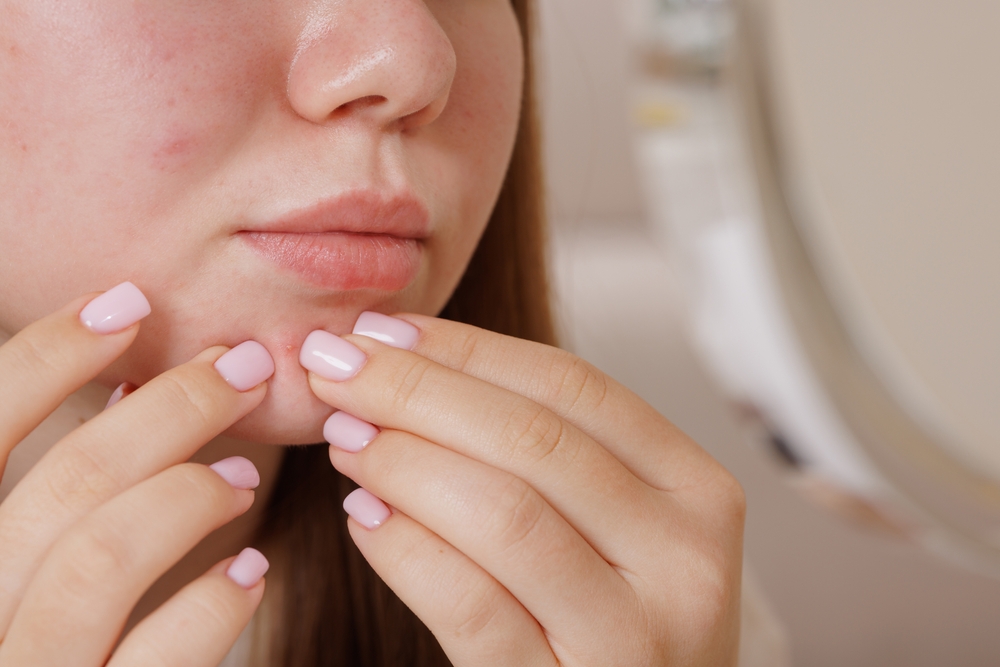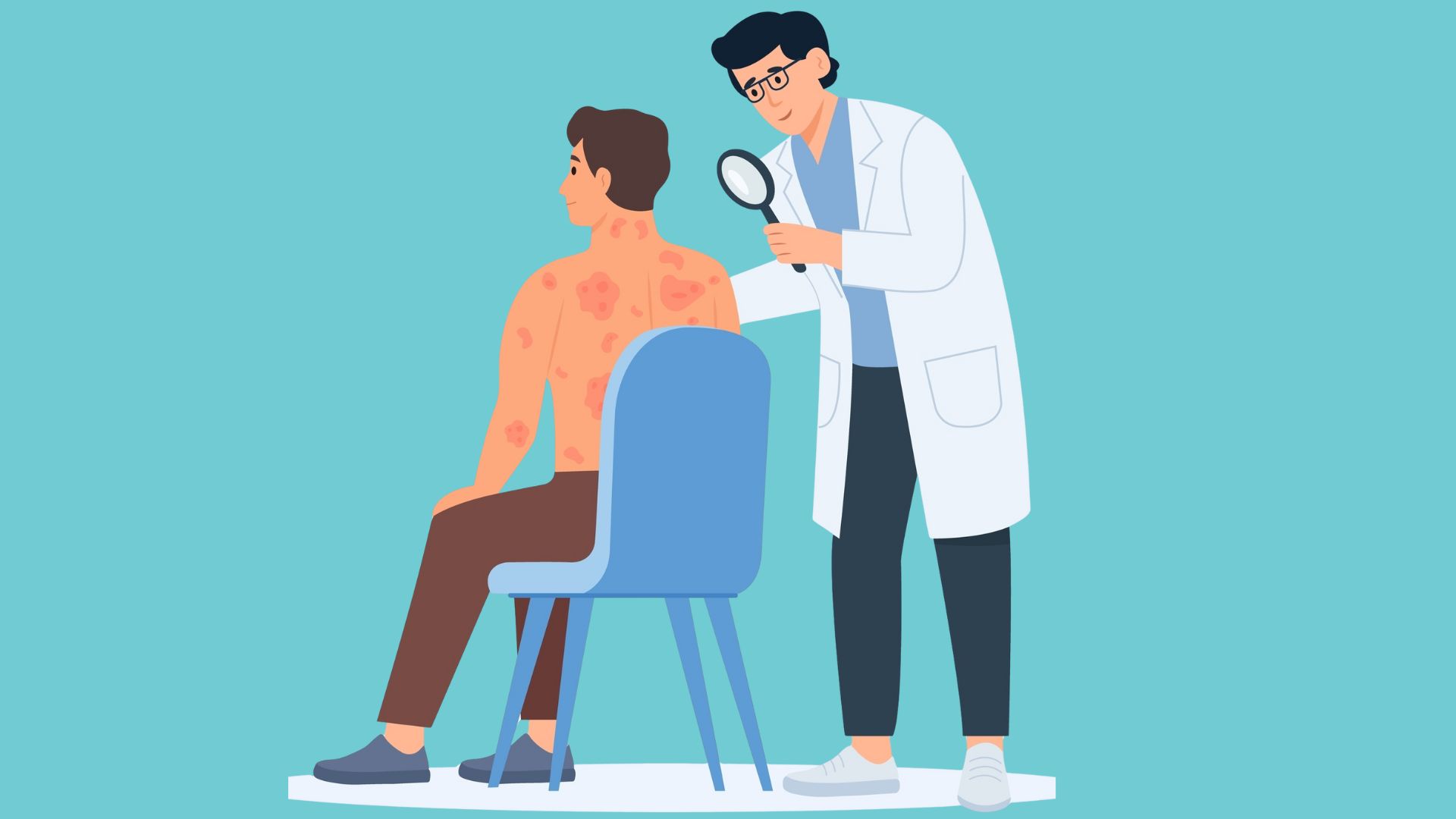Oculoplastic surgeon and facial aesthetics doctor, Dr Maryam Zamani discusses how the skin looks when affected by stress, and how to treat the results of stressed out skin.
How does stress display on the skin?
“Stress has multiple and wide impacts on skin and skin disease. The body’s stress response creates a cascade of events which result in the release of cortisol, catecholamines, and neuropeptides. Together, this has been shown to increase skin inflammation, itching, impair skin barrier function and wound healing, and suppress immunity. Specifically in skin, multiple neuroinflammatory conditions can be triggered or aggravated by stress, such as: psoriasis, atopic dermatitis, acne, contact dermatitis, alopecia areata, itch or pruritus, and erythema," explains Dr Maryam Zamani.
Does stress cause skin ageing?
“Stress can cause detrimental physiological and functional consequences in the skin.
"Skin ageing is characterised by formation of lines and wrinkles, increased pigmentation, loss of elasticity and firmness, and dull skin; this can be caused by both intrinsic and extrinsic factors.
"While the exact mechanism of how stress impacts skin ageing is still being studied, we do know that epinephrine, norepinephrine and cortisol increase DNA damage, interfere with DNA repair, and alter transcriptional regulation of the cell cycle," explains Dr Maryam Zamani.
"UV irradiation, smoking and air pollution have been confirmed as critical chronic stressors that impact skin ageing significantly," continues Dr Maryam Zamani.
"Telomere shortening has emerged as another possible cellular mechanism linking chronic psychological stress and ageing. Various chronic stress situations have been associated with shorter telomere length, including caregiving for a family member with chronic conditions or elderly dementia patients, major depression, childhood adversity, and exposure to intimate partner violence.
"Recent studies have also shown the negative effect of sleep deprivation on skin ageing. Lack of sleep creates increased signs of intrinsic skin ageing, such as fine lines, uneven pigmentation and reduced elasticity. Skin also recovers more slowly after skin barrier disruption,” explains Dr Maryam Zamani.
What treatments can help patient's skin recover from the effects of stress?
“Mind-body therapies have been shown to ameliorate some of the harmful physiological changes attributed to stress or to reduce harmful behaviours.
"Treatments such as meditation, biofeedback, hypnosis, guided imagery and more have been evaluated in the treatment of skin disease and have shown some benefits.
"Interventions have had beneficial outcomes in diseases such as atopic dermatitis, psoriasis, trichotillomania and others. There are treatments that can be used to help diminish the negative effects from stress.
"Creating a consistent and simple skincare routine to reveal, enhance and protect the skin is an effective foundation. Repairing the skin barrier is essential, a healthy and functional skin barrier is important against dehydration and penetration of allergens and irritants," adds Dr Maryam Zamani.
"Stay away from aggressive treatments. Invest in gentle exfoliation to create an inviting environment for nutrients to enhance the skin. Go for antioxidants and skin nourishers – that enhance the skin barrier and decrease trans epidermal water loss.
"Find products rich in ceramides to lock in hydration and hydrators like glycerine, hyaluronic acid and squalene. LED can also help reduce skin inflammation, improve skin health and help reduce stress. In office treatments, can be applied to help target effects such as fine line, wrinkles and pigmentation,” recommends Dr Maryam Zamani.
Treatments for stressed-out skin
"EyeBright uses a synergy of treatments, including dermal fillers and mesotherapy to rejuvenate the delicate skin around the eyes without resorting to more invasive surgery, helping to define the contours and restore lost volume with natural-looking results. Improvement of skin texture and tone are generally noticeable within three weeks, but full collagen regeneration can take up to three months."
“AviClear is a pioneering treatment for acne patients and the only FDA cleared laser technology offering a long-term solution for all forms of acne severity! It works specifically by targeting the oil-producing glands in the skin and helps to suppress the production of sebum. It is safe for all skin types and tones, and suitable for adults and teenagers.”
"Skin boosters are injectables (HA/polynucleotides) that nourish the skin and deliver deep hydration for lasting moisture and improvement of the skin’s surface with improved collagen and elastin production."
"Moxi is a gentle, fractional, non-ablative diode laser resurfacing treatment that can be used on all skin tones to promote new cell growth and reduce unwanted pigmentation with less downtime than more aggressive laser treatments."
"PRP is an effective and natural therapy that releases growth factors within the skin that are responsible for stimulating collagen and elastin production. As well as an excellent anti-ageing treatment, it can be used to treat certain blemishes such as acne marks, stretch marks, and dark circles around the eyes.”
You might also like to read... Research reveals sleep and stress are top factors affecting Brits' skin quality




